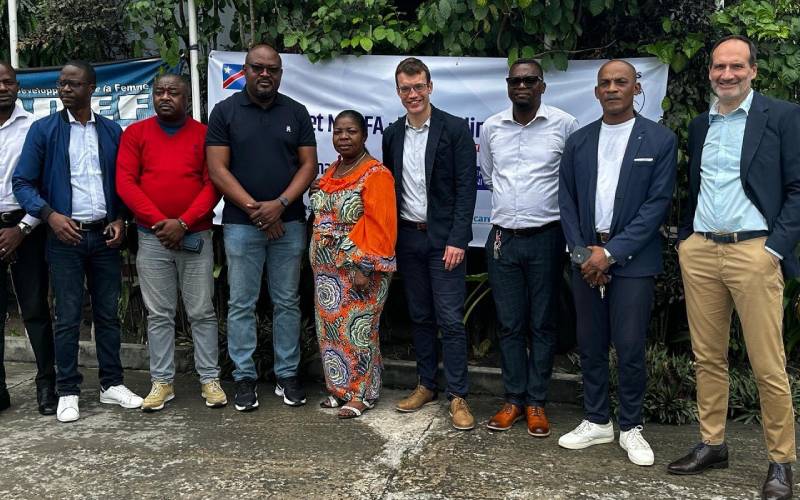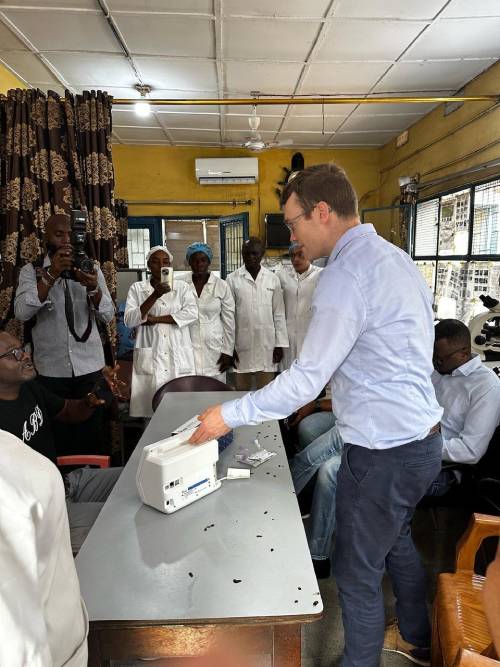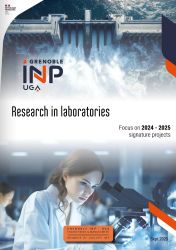
How can we provide reliable, rapid and accessible screening, even in areas with limited resources? This is the challenge that MAGIA Diagnostics, a start-up founded by Paul Kauffmann — a 2007 Grenoble INP - Phelma graduate and PhD holder from the G2Elab* laboratory — has taken up. Following several years of research and development, the company has created a device that can detect up to ten immunological markers (proteins and antibodies) in a blood sample within 12 minutes. This tool is particularly well-suited to infectious diseases such as hepatitis and HIV, where rapid diagnosis is key to reduce infection and facilitate access to treatment.
Since January 2025, MAGIA has been coordinating the three-year European MAGFA project with six international partners, including the Institut Pasteur in Paris, national laboratories in Côte d'Ivoire and Kenya, the NGO GAVIES in the Democratic Republic of Congo (DRC) and two local distributors. The program aims to assess the device's performance in laboratory and then in primary care settings that closely reflect the needs of the population. A prospective study of 7,500 pregnant women will be conducted in four DRC provinces to evaluate the impact of rapid screening on their access to care.
A constantly evolving technology
MAGIA's innovation is based on a technology that was initially developed in 2020 (see article) and has been constantly improved ever since. After the prototyping, industrialization and clinical validation phases (notably in Marseille and Perpignan), the start-up is now at the end of the regulatory phase. The aim is to submit the technical file by summer 2025, for commercial launch authorization by 2026. At the same time, research carried out with LMGP* and G2Elab - via a PHD thesis co-financed by MagIA - has shown that the technology can also be adapted to detect DNA strands. This opens the way for a device combining an immunological approach and PCR-type gene amplification, two complementary techniques in infectiology.
This ability to combine expertise in micro-magnetism (G2Elab) and biochemistry (LMGP) gives MAGIA a strategic technological edge. Ultimately, the start-up aims to offer a unique test capable of both diagnosing an infection and determining its stage, enabling immediate treatment - a crucial issue for the 300 million people in the world living with viral hepatitis, 80% of them being unaware of their status in Europe.
Backed by six patents (including one jointly held with UGA and CNRS and two with Grenoble INP - UGA and CNRS), a team of 20 people based at Échirolles, and more than €6 million raised in four rounds of financing, MAGIA is targeting Europe's 3,000 screening centres in the short term, particularly those catering for vulnerable groups. With an estimated cost of €15 for three diseases, its combined test is positioned as a robust and cost-effective alternative to conventional unit tests, particularly in the context of public health.

*CNRS / UGA / Grenoble INP - UGA



